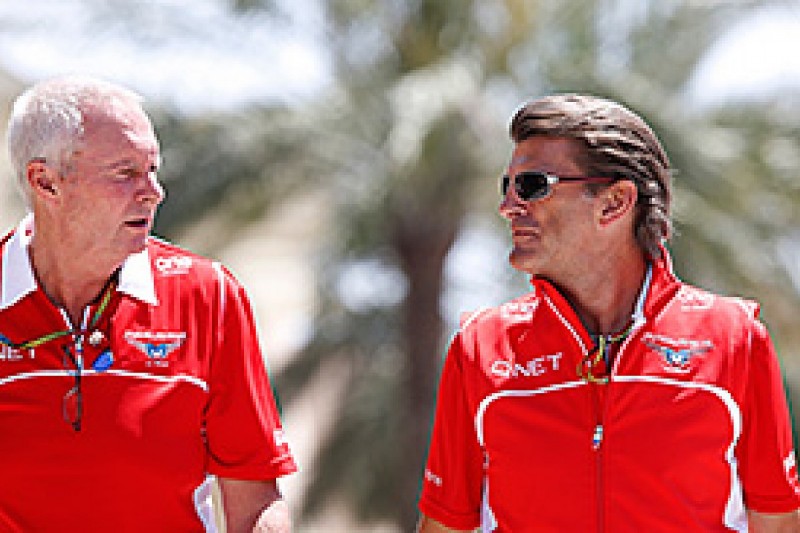Analysis: F1 cost crisis - What happens next
The absence of Caterham and Marussia when Formula 1 regroups at Austin will force the sport to ask whether its financial problems are an isolated blip or a longer-term malaise

Earlier this year it seemed a major breakthrough had happened with the FIA and teams backing the idea of a cost cap.
Then the dramatic plan was railroaded a few months later when the big teams on F1's Strategy Group vetoed it - citing that it could not be policed.
With the way the sport's governance processes work, their resistance left the FIA with little hope of pushing the cost cap through and it reluctantly abandoned the concept.
That prompted fury from F1's smaller teams, who time and again warned that grand prix racing faced a financial crisis if nothing was done.
It is only now, amid Caterham and Marussia's problems, that there has been a bit more soul searching.

Whatever the two teams' ultimate fates, of more importance to F1 is if whether sport's bosses accept there is a need to respond.
LOWDON: SORT THE ECONOMICS FIRST, NOT THE SHOW
Marussia's sporting director Graeme Lowdon has deliberately stayed away from speaking publicly about his team's situation since it went into administration, but in an interview last month he offered a fascinating perspective on the sport's financial woes.
He suggests there is a danger that the troubles at the back of the grid could lead F1 down a path that makes it no longer attractive to fans.
"Our view, which is the long-term view, is that based on the enormous fanbase, this is an inherently valuable sport both in sporting terms and in business terms as well," he told AUTOSPORT.
"But it is bit like a journey down the river in a canoe: every so often you are going to hit some rapids. And at the minute we are in some very, very severe rapids - and everybody is suffering.
"Nobody can afford to sustain this level without damaging the sport and the spectacle - we risk losing the one asset that this sport should treasure, which is the fanbase.
"So the objective has to be to try to find a strategy that everyone can adopt and that can help grow the sport, give the fans what they want and move the teams into calmer waters of more sustainability. And then we can focus on the show."
COST CUT PROMISES NOT KEPT
Amid the backdrop of teams coming under pressure, and the prospect of third cars, he argued that the biggest problem was not costs right now, but the lack of a long-term strategy to bring them down in the future.

"I think the sport is worse off if we don't have an environment that at least allows sustainability," Lowdon said.

"One of the key elements that happened after we joined was that costs would return to the level that they were in the early 1990s. That was explicit [in the original budget cap plan].
"For a business like ourselves, we have to attract investors. And one of the key things that investors look for is stability, integrity and delivery on promises.
"I think it is really important that the industry does not forget the fact that it needs to make itself attractive to investors.
"The finances of most of the teams in F1 are very transparent and very open, they are publicly filed documents, and it is quite easy to see that nobody is creating an enormous return at the moment."
These are the very issues that F1 chiefs and top teams are going to have to think long and hard about now.
The warnings from the small teams appear to be based on solid foundations: but will F1 react in a way that ensures a brighter future, or plough on in the belief that nothing is really wrong?
All eyes are on the response from Austin.
This week's AUTOSPORT magazine - available online and in shops now - includes DIETER RENCKEN's comprehensive analysis of every Formula 1 team's income and expenditure as part of in-depth coverage of the crisis prompted by Marussia and Caterham's problems
Be part of the Autosport community
Join the conversationShare Or Save This Story
Subscribe and access Autosport.com with your ad-blocker.
From Formula 1 to MotoGP we report straight from the paddock because we love our sport, just like you. In order to keep delivering our expert journalism, our website uses advertising. Still, we want to give you the opportunity to enjoy an ad-free and tracker-free website and to continue using your adblocker.















Top Comments